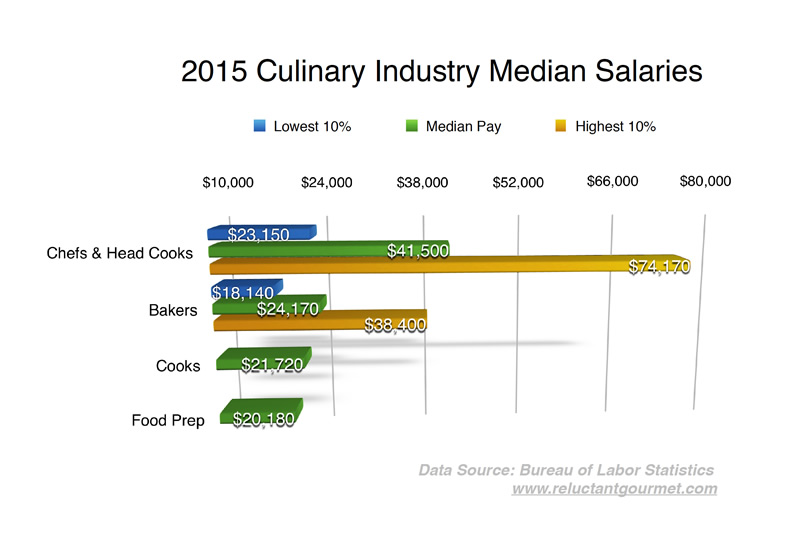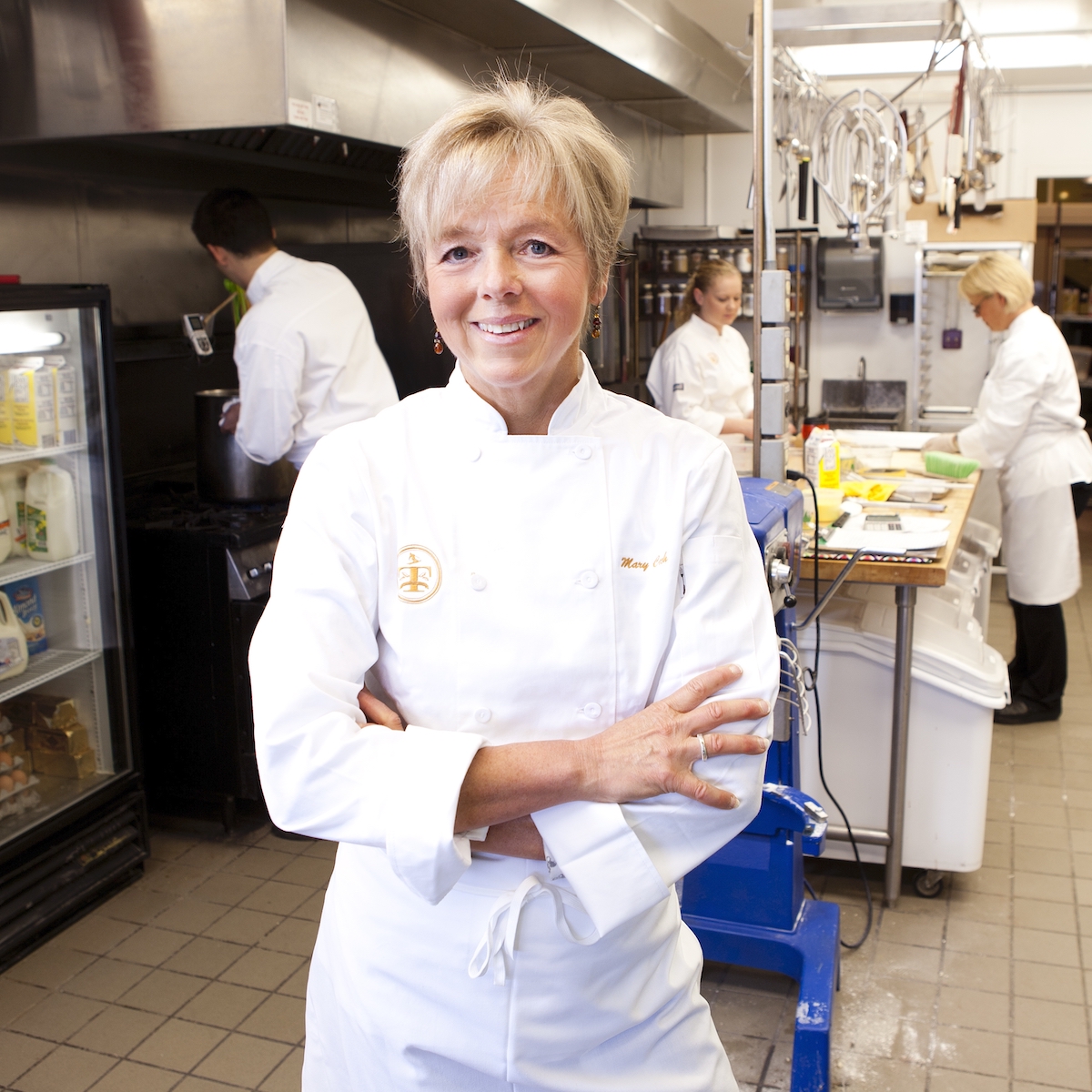What Can You Expect To Earn In The Culinary Industry?
Money is one of those topics that all culinary students want to know more about. How much does culinary school really cost? How much can I expect to make after culinary school graduation? Exactly how much money does Rachel Ray bring in every year?
These questions are valid; after all, becoming a chef is a life-long dream for many people, and knowing exactly what to expect in pursuing that dream is important.
Although salaries in the culinary industry vary depending on where you live (for example, a job in New York is going to pay more than a job in Iowa, simply by the cost of living) and what type of restaurant you’re in, there are a few averages that can help you in making a decision.
At one end of the spectrum are the line cooks and sous chefs, who make among the lowest incomes in the culinary industry. Entry-level positions begin at $18,000 a year and work up to $28,000, depending on whether or not you have a degree and/or experience in the kitchen.
Baking schools tend to be less popular than culinary schools, and the starting wages in this field reflect that. That’s because those who do the hiring (commercial baking kitchens and bakeries) don’t always have as many opportunities for career growth. Graduates can expect to make between $16,000 and $26,000 to start.
The field of hospitality management typically offers a higher starting wage, though it often requires an Associate’s or Bachelor’s degree before hire. Most professionals can expect to earn between $25,000 and $45,000 for working directly with the food or in a more general manager’s role. Career advancement in hospitality management tends to be higher than what you can find in a more traditional culinary role, with top hotel managers exceeding the $80,000 mark.
At the higher end of the spectrum are Chefs and Pastry Chefs, who can earn anywhere from $30,000 to upwards of $60,000 per year, depending on their success and where they work. For those interested in opening their own restaurants, the pay can range anywhere from a modest $40,000 to over $100,000 per year, though the number of hours worked a day (at least initially) can be grueling.
Of course, there are exceptions to any and all of these rules – and there are other benefits to consider. Many culinary professionals find that the creative license given at a smaller restaurant makes the lower pay acceptable. In contrast, others find the weekend and evening hours at a hotel are a great trade-off for a higher income.













